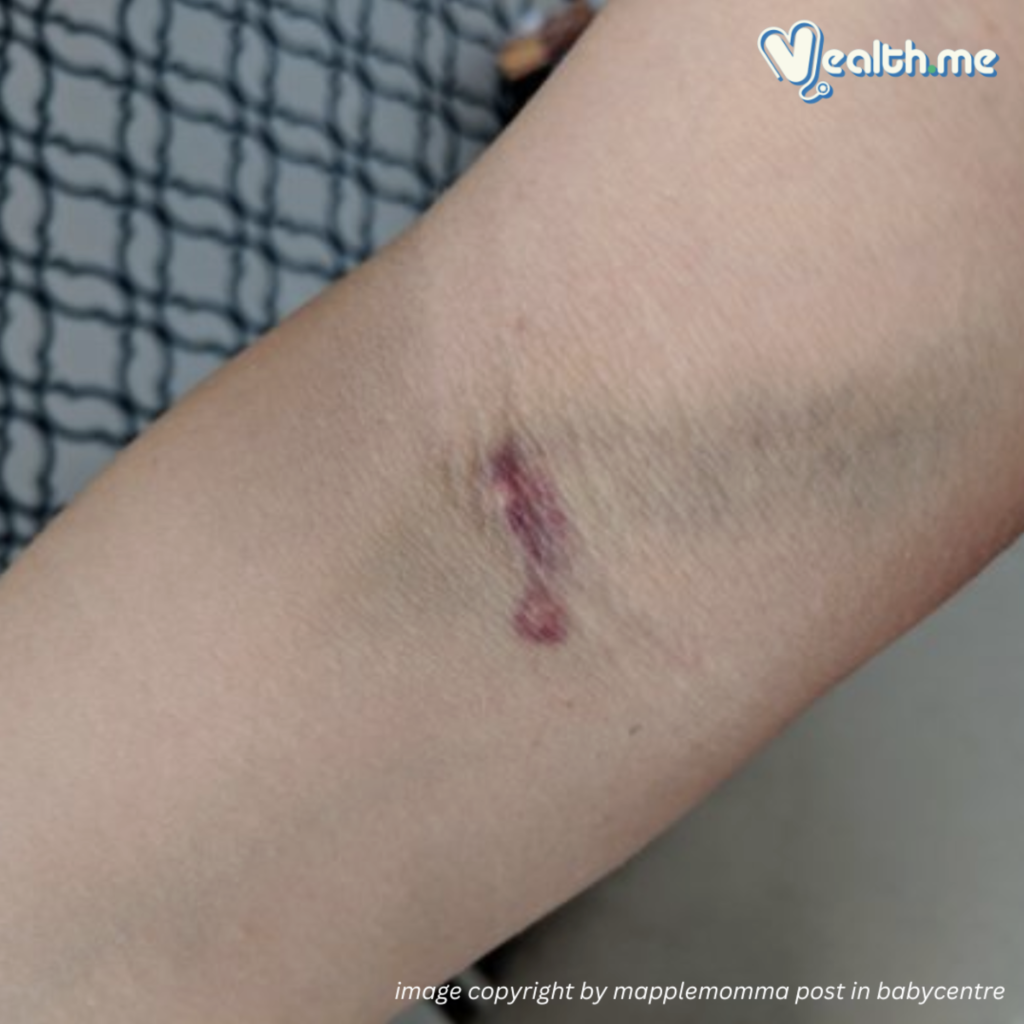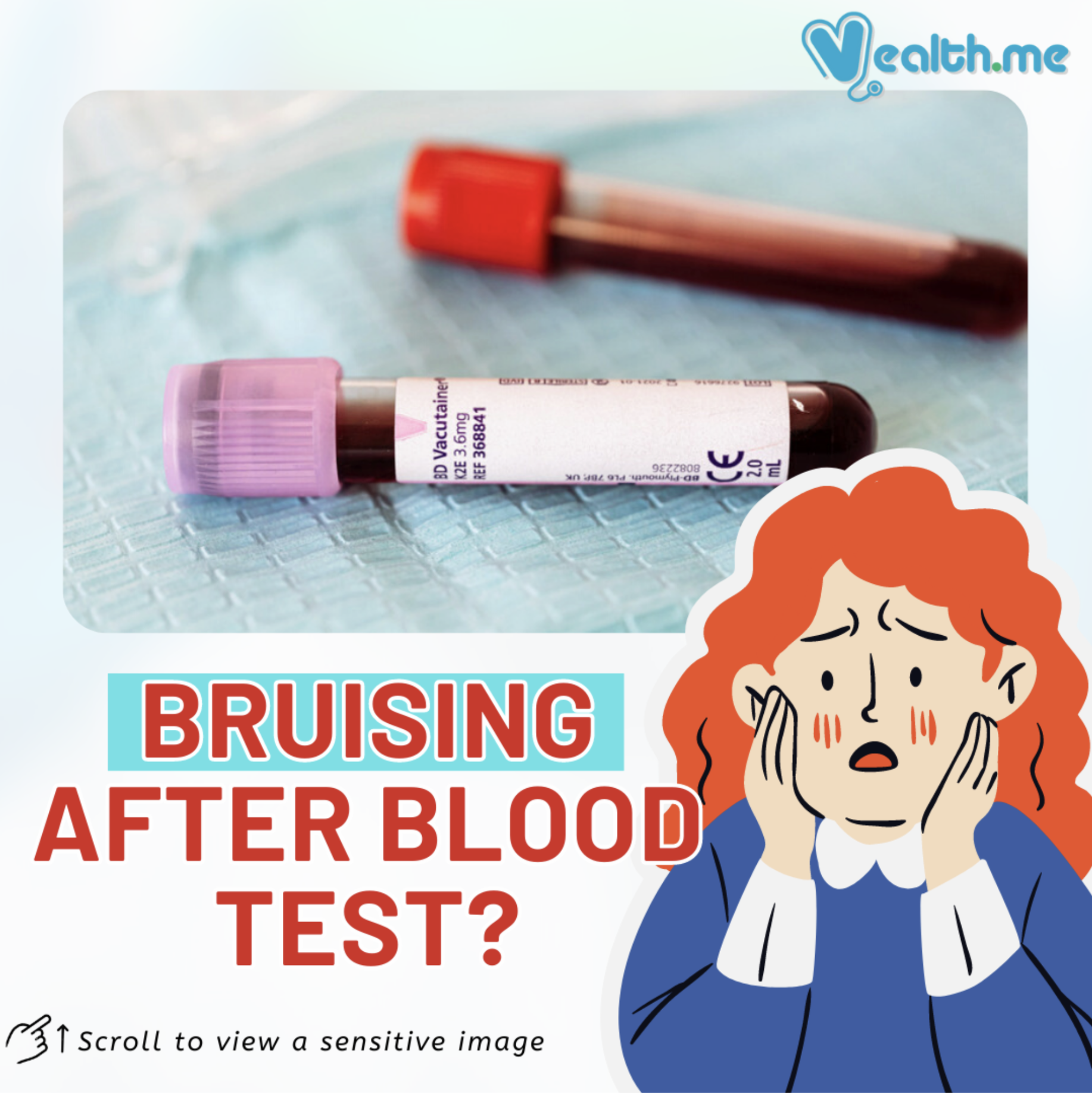Do you know that?
It is common to experience #bruising or #soreness after a blood test. Bruising can occur when the needle punctures a blood vessel, causing a small amount of blood to leak out and collect under the skin.
..and usually,
This is not a cause for concern and the bruising should go away on its own within a few days.
Yes, you hear it right, it will go away on its own!

What are the causes of bruising?
Puncturing a small blood vessel
Sometimes, the needle may puncture a small blood vessel in the skin, causing blood to leak out and collect under the skin.
Fragile blood vessels
Some people may have fragile or easily damaged blood vessels that are more likely to leak after a needle stick.
Medications
Certain medications such as blood thinners can make it easier for blood to leak out of the puncture site and result in a bruise.
Technique
The way the blood is drawn can also affect the likelihood of bruising.
One study published in the Journal of Clinical Nursing in 2013 found that the incidence of bruising after phlebotomy (the practice of drawing blood) was approximately 17% among patients in a hospital setting.
However, the incidence varied depending on the location of the blood draw, with the highest incidence of bruising occurring in the antecubital fossa (the bend of the elbow) at 23%.
What to do if you have bruising after blood test?
If you have bruising at the site where blood was drawn, there are a few things you can do to help reduce the discomfort and speed up the healing process:
✔ Apply a cold compress: Use an ice pack or a cold, damp cloth to apply gentle pressure to the bruised area for 10-15 minutes at a time, several times a day.
✔ Elevate your arm: Keeping your arm elevated above your heart can also help to reduce swelling and promote blood flow to the area, which can help speed up the healing process.
✔ Take pain relief medication if needed: Over-the-counter pain relievers such as acetaminophen or ibuprofen can help to alleviate any discomfort or pain associated with the bruising.
✔ Give it time: In most cases, bruising after a blood test should resolve on its own within a week or two. Be patient and allow your body time to heal.
If you notice any signs of infection such as redness, warmth, or pus around the bruised area, or if you develop a fever, it's important to contact your healthcare provider as this may require further medical attention.
We hope that this explanation has clarified that bruising after a blood test is not a cause for significant concern or fear, and it should not cause you to feel traumatized about future blood tests.
#bloodtest #brusing


